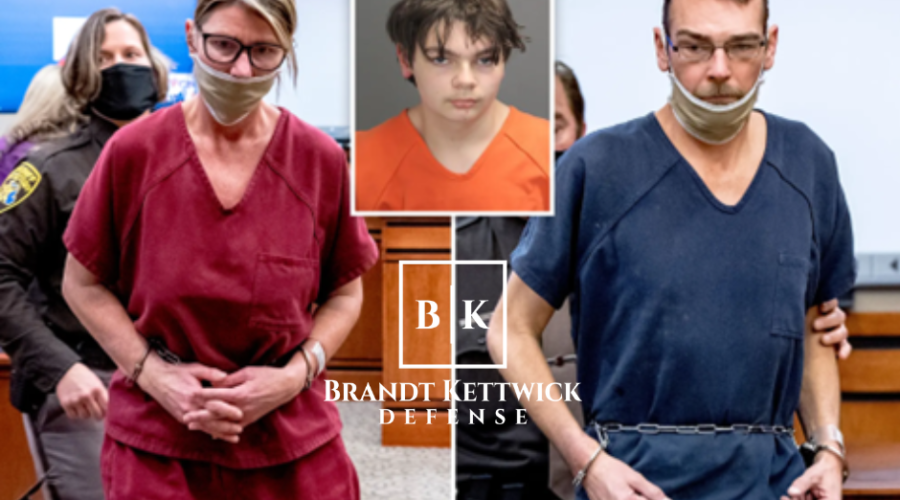February 6, 2024, a groundbreaking verdict was reached in the case of Jennifer Crumbley, the mother of the teenager who killed four students at an Oxford, Michigan, high school in 2021. Jennifer Crumbley and her husband James Crumbley were charged with four counts of involuntary manslaughter for their role in their son’s rampage, which left four students dead and seven wounded. Opening statements in Jennifer Crumbley’s jury trial started on January 25th and yesterday Jennifer Crumbley was found guilty and now faces up to 15 years in prison. This novel prosecution theory begs the question of who may be criminally responsible for a child’s acts.
Michigan prosecutors argued Jennifer Crumbley is guilty of Involuntary Manslaughter under a theory of “gross negligence”. Prosecutors identified three critical facts to support their theory. First, the defendants failed to provide necessary mental health treatment for their son. Second, the defendants gifted their 15-year-old son a firearm. Third, despite requests from school officials, they refused to remove their son from school the day of the shooting.
Jennifer Crumbley’s defense attorney argued there is no legal justification for the criminal charges. In fact, the prosecution theory is so novel, the defense filed a pretrial appeal challenging the charges. The appellate court made multiple findings in concluding the case may proceed to trial. These findings include that Jennifer Crumbley, and her husband were made aware of mental health concerns regarding their son on several occasions by friends and school officials. Not only was there evidence that showed the Crumbleys blatantly ignored concerns that their son needed proper mental health treatment, but that they also purchased a firearm for him. The appellate court also cited video footage and witness statements from the day of the shooting showing the Crumbleys were called into the school counselor’s office regarding a violent and grotesque image Ethan had drawn. Unfortunately, rather than following the school counselor’s advice to take their son home and seek immediate mental health treatment, the Crumbleys refused, stating they did not want to miss work. Ethan stayed in school and shortly after took the firearm his parents gave him from his backpack and opened fire on his classmates.
Due to the amount and type of evidence presented, the appellate court held that there was sufficient evidence showing “reasonable foreseeability” and allowed the case to proceed to trial. At trial, the defense team countered the prosecution theory and facts by asking the jury, “Can every parent really be responsible for everything their children do, especially when it’s not foreseeable?” The jury answered the question with a guilty verdict.
Can this novel prosecution theory be used in Minnesota? It is critical to note criminal statutes vary from state to state, and Minnesota does not have the exact statutory language Michigan used. Perhaps the most analogous argument to be made in Minnesota is found in Minn. Stat. 609.205, Manslaughter in the Second Degree. Here, criminal responsibility can be found if the actor causes a death by “culpable negligence,” creating an unreasonable risk and consciously taking a chance of causing death. Culpable negligence is defined as “intentional conduct that the defendant may not have intended to be harmful, but that an ordinary and reasonably prudent person would recognize as involving a strong probability of injury to others.” See CRIMJIG 11.56. The same CRIMJIG references criminal liability for all the consequences of one’s actions that occur in the ordinary and natural course of events.
Now, compare Minnesota law to the theory used in Michigan, which based criminal responsibility on the “foreseeability” of Ethan’s conduct which should have been known to the parents. So, Minnesota parents, would Jennifer Crumbley’s conduct result in a guilty verdict in Minnesota?


